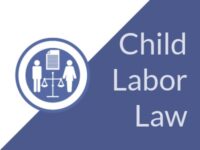Millions More U.S. Workers Eligible for Overtime Under Final DOL Rule
Over the past seven years, the U.S. Department of Labor (DOL) has attempted to increase the number of exempt employees who are eligible for overtime under the Fair Labor Standards Act (FLSA). On April 23, 2024, the DOL announced a final rule regarding the salary threshold required to exempt a salaried executive, administrative, or professional […]










